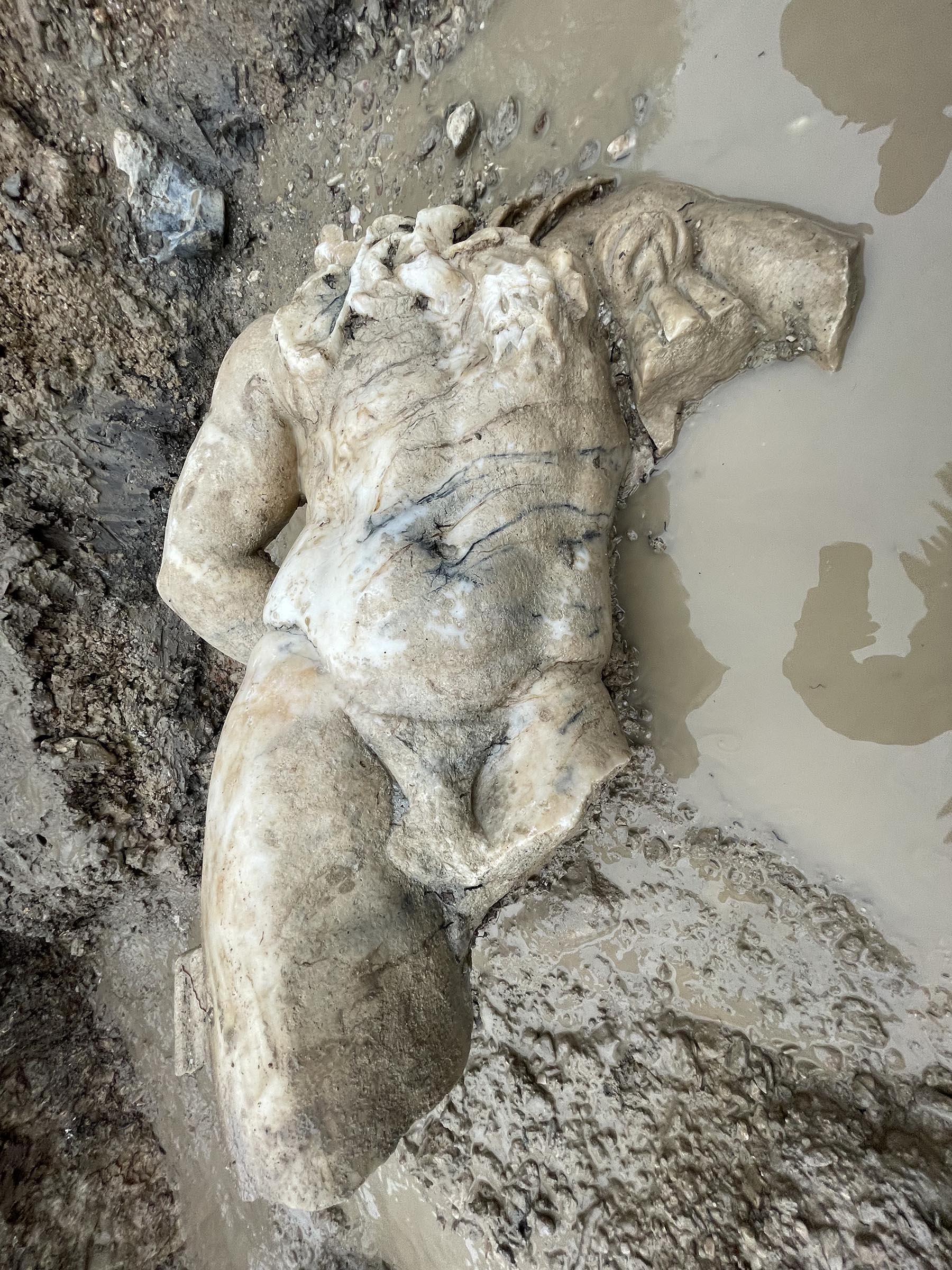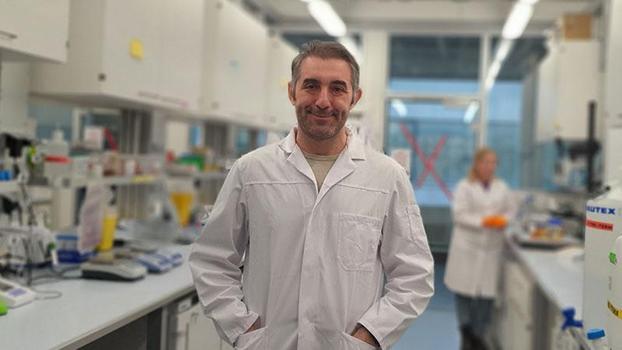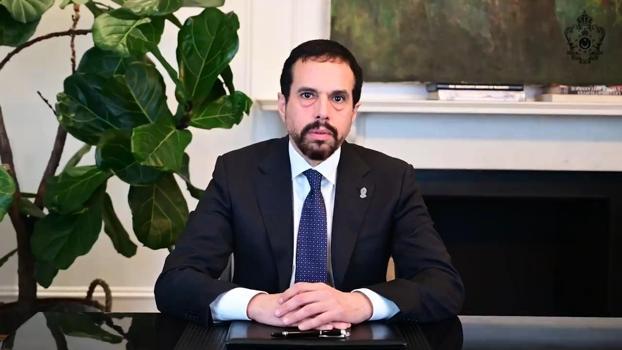Marble statue of 'Hercules' found in an excavation in Aizanoi Ancient City
A headless marble statue of the demigod 'Hercules', known as 'Heracles' in Greek mythology, was found during the excavations carried out in the Penkalas creek in the ancient city of Aizanoi, which is on the UNESCO World Heritage Tentative List, in the Cavdarhisar district of Kutahya.
Excavations, carried out with 120 people by the Kutahya Museum Directorate and the Faculty of Science and Letters Department of Archeology at Dumlupinar University, continue in the ancient city of Aizanoi in the Cavdarhisar district. Excavations in the ancient city, which dates back to the BC 3000s and are thought to be one of the metropolises of the period with its historical structures such as the theatre, stadium, Temple of Zeus, and Agora, were concentrated on the Penkalas creek. During the excavations, the marble statue of the demigod 'Hercules', known as 'Heracles' in Greek mythology, was found after the head of the statues of 'Aphrodite', the goddess of love and beauty, and 'Dionysus', the god of wine were also found.
“WE ARE VERY HAPPY TO FIND THIS TYPE OF 'HERACLES' STATUE”
Noting that the statue found is compatible with the 'resting Heracles' type in the archaeological literature, Faculty of Science and Letters Department of Archeology Head at Dumlupinar University and Excavation Coordinator Prof. Dr. Gokhan Coskun said, “Although the head part is not preserved, we can easily understand that it is 'Heracles' based on the lion skin on it. The 'resting Heracles' sculpture type is a type used in many places in the ancient world. Today, this type of 'Heracles' statue is found in various excavations around the world, but we are very happy to find this type of 'Heracles' statue for the first time in Aizanoi.”
The statue, which was removed from the Penkalas creek, was taken into the archaeological examination.






